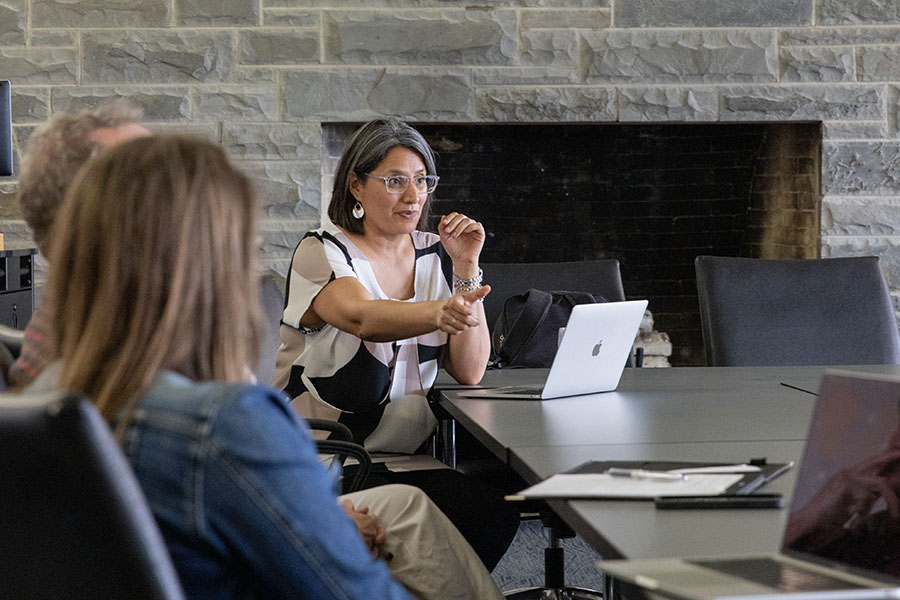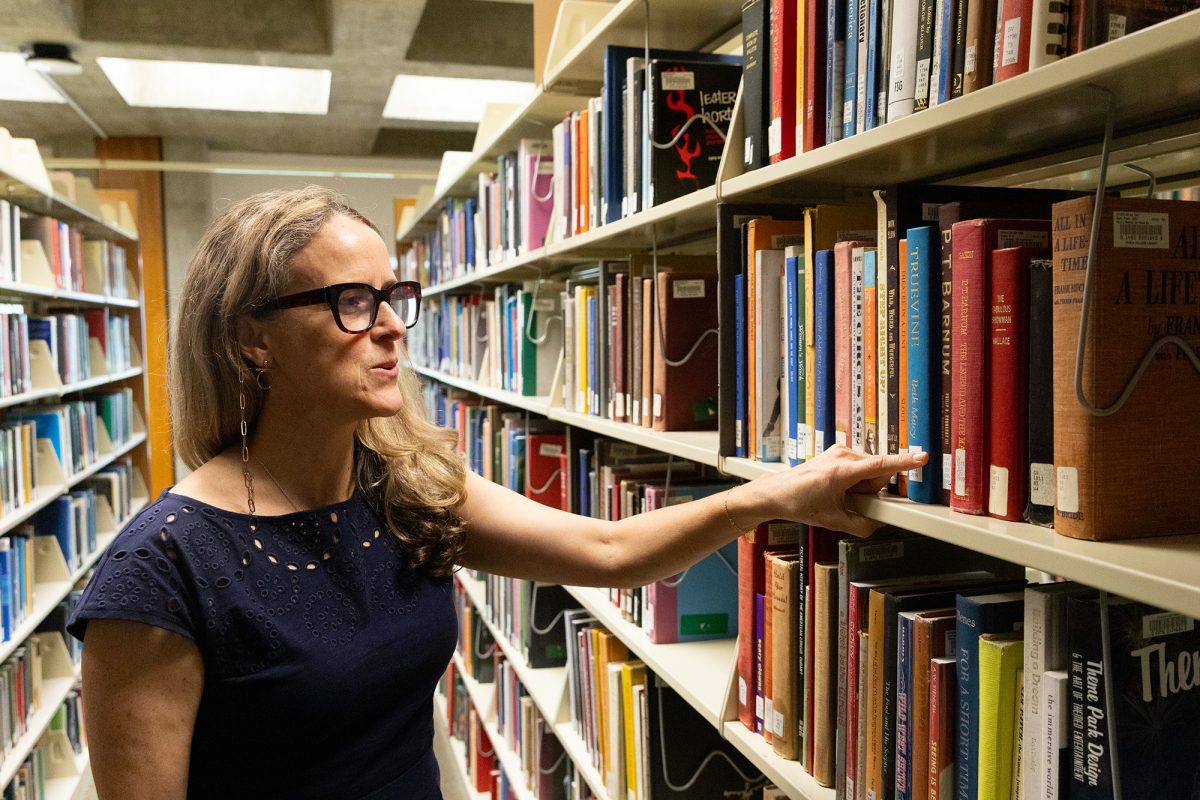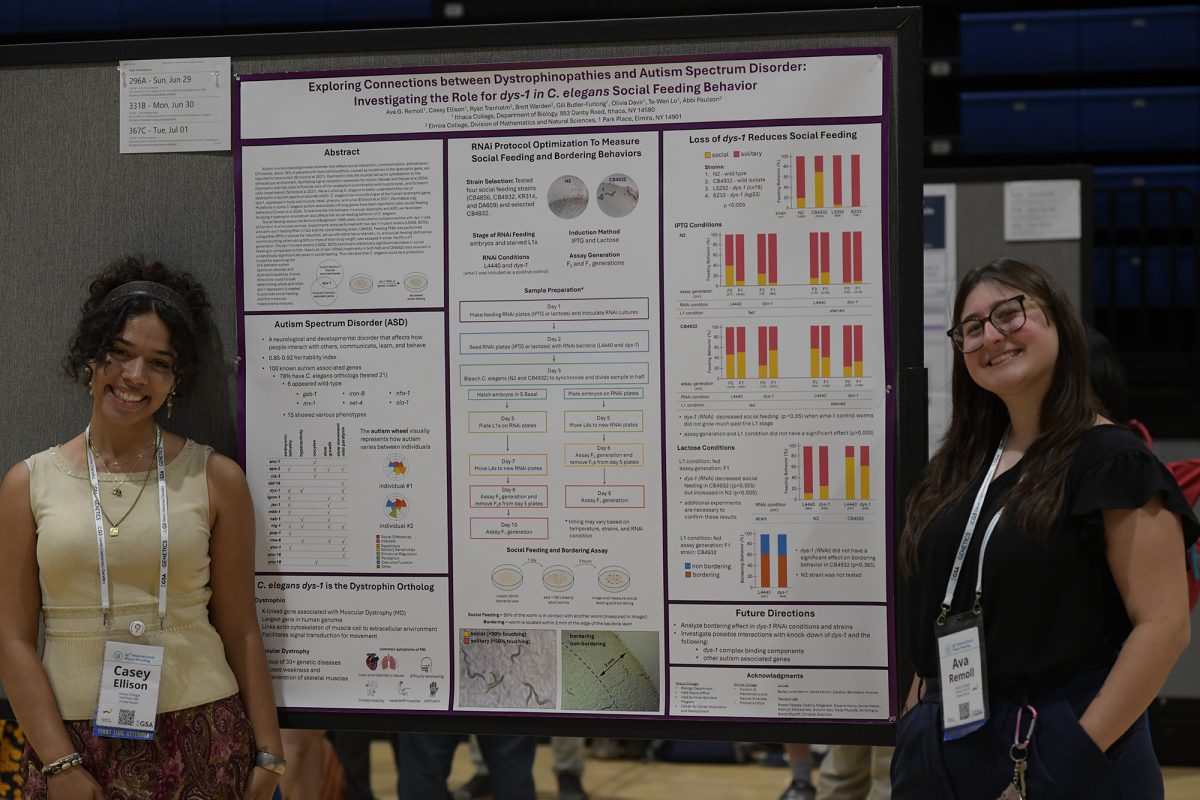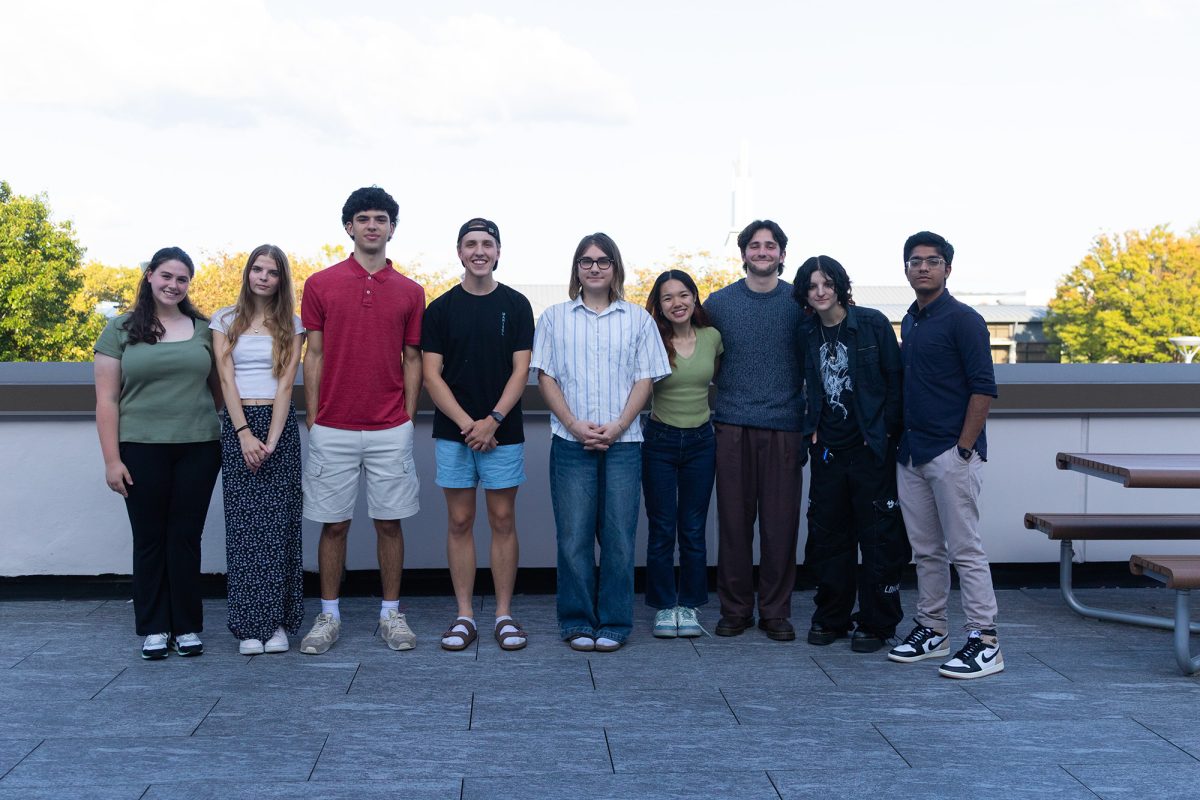On April 30, the Campus Climate Committee co-chairs hosted follow-up meetings for faculty and students to discuss the Key Findings report that was released April 16.
In the faculty meeting, attendees discussed what they found interesting about the key findings from the survey. Twelve faculty members attended the session, which was moderated by Belisa González, dean of faculty equity, inclusion, and belonging and co-chair of the Campus Climate Committee.
Leigh Ann Vaughn, professor in the Department of Psychology, said she was not expecting the dissatisfaction reported by many faculty members.
“I was surprised at the percentage of faculty respondents who had what seemed to be some pretty negative feedback,” Vaughn said. “So it was the findings about being dissatisfied with salary, benefits [and] pay. 70% of [faculty respondents], if I’m remembering that correctly, said they thought about leaving.”
When discussing why faculty dissatisfaction was so low, Hugh Egan, professor in the Department of Literatures in English, said it was even more shocking that the highest dissatisfaction levels were reported by tenured professors.
According to the Key Findings Report, tenured or tenure-eligible faculty reported having lower levels of comfort than non-tenure track (NTEN) and temporary faculty — a difference that did not exist in 2016. 39% of tenure and tenure-eligible faculty reported feeling “comfortable” or “very comfortable,” while 64% of NTEN and temporary faculty reported feeling the same.
“Because in one way, tenured and tenure-eligible [faculty] are the most protected or safe category on campus, but on the other hand, they’ve been here a long time to recognize the climate change and might be more inclined to register critique or criticism,” Egan said.
González said that although this was an important concern, it is not a situation unique to Ithaca College.
“I will tell you that I did ask if that dissatisfaction with tenure and tenure-eligible faculty was unique to the college, and the consultants were like, ‘Oh no, that’s everywhere,’” González said. “And they said that in other places, it seemed to have a lot to do with threats to academic freedom.”
A professor in the Department of Sociology, who is anonymous because of personal safety concerns unrelated to the college, said the dissatisfaction levels could also be attributed to events that have occurred over the last few years, including the COVID-19 pandemic and the faculty members that were laid-off by the college in 2021. They said those causes were likely a large part of faculty dissatisfaction, even though there was not a place in the survey to address them.
“I’m on my floor in Muller and I know that on the fourth floor above me there are … empty faculty offices, and I show up to a parking lot where anytime I’m there, there are empty parking spaces,” they said. “So I’m already coming in and I come in feeling exhausted with all of that. And those things aren’t necessarily in the climate survey, they’re in me. They’re in my colleagues. They’re in my classroom.”
When discussing the next campus climate survey, which is set to take place in the next three years, Deborah Rifkin, professor in the Department of Music Theory, History, and Composition, said it will be hard to measure the success of the survey.
“Something that I’d like to bring back, either to the committee or to the consultants, is what does a successful climate survey look like?” Rifkin said. “What is success? Because so much of this is relative and contextualized and individual to us. I know what my personal success is in terms of fulfillment, but collectively, I’m not sure I know what that is. How do we say we’ve improved culture? How do we know?”
González said that while it is hard to determine the success of the survey based on the results alone, discussing the results with students, faculty and staff will make it easier to outline the next steps for the committee to take.
“For me, the quantitative data tells us where to look,” González said. “It doesn’t tell us what’s going on. So we need to spend some time thinking about why there’s this discrepancy, but also [about] what the quantitative data and qualitative data can sort of tell us. And then, quite honestly, do we need to ask more questions?”
Student meeting
The student meeting was led over Zoom by Luca Maurer, executive director for student equity, inclusion and belonging and co-chair of the Campus Climate Committee. Though no students attended, Maurer said it was necessary to have students on the committee during the process. The committee began meeting in April 2023 and the student committee members played a large role in discussing the logistics, language and questions of the survey.
“We went one by one with each question that [the Rankin Group] had, to talk about whether or not it fit [and] whether or not it was accurate because different schools have different institutions and different organizational charts,” Maurer said. “So that way we separate out tenured faculty, non-tenure faculty, graduate students, undergrad [students] to make sure that they are matched but also input into the demographic questions to make sure that they are not just appropriate, but recognize our campus community.”
Maurer said the purpose of the separate meetings for students, faculty and staff was to determine what the next action steps should be after the results of the Campus Climate Survey came out. He said students who were not able to attend the meeting should consider emailing the committee directly at [email protected].
“I would hope that if students have strong feelings about what that means, that they would make their needs known,” Maurer said. “Our action steps are … to improve the campus climate.”
The college began working with the Rankin Climate in 2016 after then-president Tom Rochon asked the working group for campus climate for recommendations of groups to work with. Maurer said the college recommended Rankin because they have worked with higher education institutions before.
“It also means they can compare where we’re at to other institutions where they have that data and although they would shield the names … they can say, ‘Oh, compared to all of this, all of our clients are here or compared to all of our clients that are similar institutions.’ And that is a real strength this time around,” Maurer said.
Maurer said President La Jerne Cornish asked the diversity, equity, and inclusion working group to recommend other groups to work with. He also said the working group chose Rankin again so that the college could compare the climate of the campus from the 2023 academic year to the 2016 academic year.
“It would mean we would also be able to benchmark where we are now with where we were last time,” Maurer said. “So not just against others, not just against the backdrop of other institutions.”
News editor Prakriti Panwar contributed reporting

















